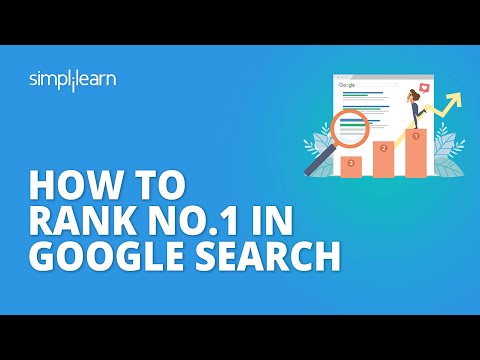How to Boost Your Website’s Ranking: Proven SEO Strategies

Search Engine Optimization (SEO) is a critical component of digital marketing. It helps your website rank higher on search engines like Google, driving organic traffic and increasing visibility. In this article, we’ll explore proven SEO strategies to boost your website’s ranking.
Understanding SEO Basics
SEO involves optimizing your website to make it more attractive to search engines. This includes on-page SEO, off-page SEO, and technical SEO. On-page SEO focuses on content and HTML source code, while off-page SEO involves building backlinks and social signals. Technical SEO ensures your website is crawlable and indexable by search engines.
To succeed in SEO, you need to understand your target audience and the keywords they use. Keyword research is the foundation of any SEO strategy. Tools like Google Keyword Planner, Ahrefs, and SEMrush can help you identify high-traffic, low-competition keywords.
Proven Strategies to Boost Your Ranking
1. Optimize Your Content: Create high-quality, engaging content that answers user queries. Use keywords naturally and avoid keyword stuffing. Include headings (H1, H2, H3) to structure your content.
2. Build Quality Backlinks: Backlinks from authoritative websites signal to search engines that your content is valuable. Focus on earning backlinks through guest blogging, partnerships, and creating shareable content.
3. Improve Page Speed: A fast-loading website enhances user experience and improves rankings. Use tools like Google PageSpeed Insights to identify and fix performance issues.
4. Mobile Optimization: With most users accessing the web via mobile devices, having a mobile-friendly website is crucial. Use responsive design and test your site on multiple devices.
5. Use Schema Markup: Schema markup helps search engines understand your content better. It can improve your chances of appearing in rich snippets, which can boost click-through rates.
6. Focus on User Experience (UX): A well-designed website with intuitive navigation keeps users engaged. Ensure your site is easy to navigate, with clear calls-to-action (CTAs) and minimal distractions.
7. Leverage Social Media: Promote your content on social media platforms to increase visibility and drive traffic. Engage with your audience and encourage them to share your content.
8. Regularly Update Your Content: Search engines favor fresh, up-to-date content. Regularly update your blog posts, product pages, and other content to keep it relevant.
9. Optimize for Local SEO: If you have a local business, optimize for local search by creating a Google My Business profile and using location-based keywords.
10. Monitor and Analyze Performance: Use tools like Google Analytics and Google Search Console to track your website’s performance. Identify areas for improvement and adjust your strategy accordingly.
By implementing these strategies, you can significantly improve your website’s ranking and attract more organic traffic.
Advanced SEO Techniques
For those looking to take their SEO efforts to the next level, consider these advanced techniques:
1. Content Clustering: Group related content into clusters to improve topical relevance and authority. This helps search engines understand the context of your content.
2. Voice Search Optimization: With the rise of voice assistants like Siri and Alexa, optimizing for voice search is becoming increasingly important. Use natural language and long-tail keywords.
3. Video SEO: Videos are highly engaging and can improve your rankings. Optimize video titles, descriptions, and transcripts for search engines.
4. International SEO: If you target a global audience, use hreflang tags to indicate language and regional targeting. This helps search engines serve the correct version of your site to users.
5. E-A-T (Expertise, Authority, Trustworthiness): Focus on building your website’s E-A-T by showcasing credentials, testimonials, and high-quality content.
By combining these advanced techniques with the foundational strategies, you can create a robust SEO plan that delivers long-term results.
Common SEO Mistakes to Avoid
While implementing SEO strategies, it’s important to avoid common pitfalls:
1. Keyword Stuffing: Overloading your content with keywords can lead to penalties from search engines. Use keywords naturally and focus on readability.
2. Ignoring Mobile Users: With mobile traffic surpassing desktop, failing to optimize for mobile can hurt your rankings.
3. Neglecting Technical SEO: Issues like broken links, duplicate content, and slow page speed can negatively impact your rankings.
4. Focusing Only on Rankings: While rankings are important, they are not the only metric of success. Focus on driving meaningful traffic and conversions.
5. Not Tracking Progress: Without monitoring your performance, you won’t know what’s working and what needs improvement.
By avoiding these mistakes, you can ensure your SEO efforts are effective and sustainable.
Conclusion
Boosting your website’s ranking requires a combination of proven strategies, advanced techniques, and avoiding common mistakes. By focusing on high-quality content, building backlinks, improving user experience, and staying updated with SEO trends, you can achieve long-term success in search engine rankings.




![Roblox Digital Gift Card - 2,500 Robux [Includes Exclusive Virtual Item] [Digital Code]](https://nbanner.link/img/B07RX6FBFR.jpg)